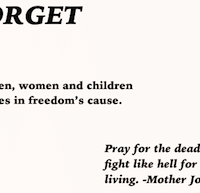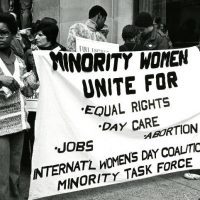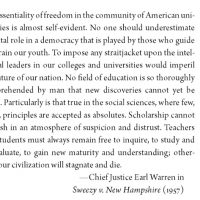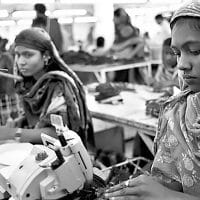-
Time for the “International Left” to take a stand on Venezuela
The possibility of an open civil war in Venezuela is not shocking. People are tensing up with the International left being reluctant to show solidarity with the Maduro government and the Bolivarian socialist movement. The need to examine what “neutrality” or, allowing the opposition to come to power via an illegal and violent transition, would mean.
-
IWW Miners of Jerome & Bisbee loaded into cattle cars and deported from state of Arizona
In 1912, more than 1000 working class men, mostly members of the Metal Mine Workers Industrial Union of the Industrial Workers of the World, being loaded into cattle cars in Bisbee, Arizona, July 12th, for the purpose of being deported from the state of Arizona.
-
Ten problems with anti-Russian obsession
The “scandal” of Russia influencing or at the very least meddling with the 2016 presidential elections, pushing Donald Trump to be our now president, has become something of fact without argument. Through propogated news and social media putting out false truths and allegations taken as facts, makes it hard to know the truth. But there will always be ones who go deep and find that truth. However, as long as there are liers and cheaters in this world, the “truth” itself my never really be truthful.
-
The pitfalls of radical feminism
For many socialist feminists, critiquing liberal feminism is easy. Many of us came to socialism from liberalism and have a clear understanding of its limits and flaws. However, the history and substance of radical feminism is less well known. While the “radical” in radical feminism seems to suggest a politics that socialists would embrace… [it is] incompatible with socialist feminism. Plagued by a narrow understanding of gendered oppression and a misguided strategy for change, radical feminism ultimately fails to offer women a clear path to liberation.
-
Sweezy at sixty
I did not know that Albert Einstein was a socialist. Maybe I had known once, or more likely, never cared. But in 1949, when the great physicist and Nobel laureate declared his beliefs, in the innocuously titled “Why Socialism?,” a lot of people would have cared. Indeed, by 1953, Joseph McCarthy was after him, and people were sending hate mail to the Institute for Advanced Study asking that Einstein, a founding member of the research center, be sent packing.
-
Empire Files: Abby Martin meets the Venezuelan opposition
Abby Martin goes on the deadly front lines of the anti government protests in Venezuela and follows the evolution of a typical guarimba—or opposition barricade. She explains what the targets from the opposition reveal about the nature of the movement and breaks down the reality of the death toll that has rocked the nation since the unrest began, and how a lynch mob campaign came after her and the Empire Files team for reporting these facts.
-
Cuba: critical thought in the socialist transition
The distance that separates us today from the first issue of Pensamiento Crítico (Critical Thought) is exactly the same as the distance between this revolutionary, intellectual adventure and the October Revolution: half a century. The coincidence in this case is not limited to random chance.
-
Noam Chomsky on Fascism, Trump, and the state of the union
Over the past few months, as the disturbing prospect of a Trump administration became a disturbing reality, I decided to reach out to Noam Chomsky, the philosopher whose writing, speaking and activism has for more than 50 years provided unparalleled insight and challenges to the American and global political systems. Our conversation, as it appears here, took place as a series of email exchanges over the past two months. Although Professor Chomsky was extremely busy, because of our past intellectual exchange, he graciously provided time for this interview.
-
Wonder Woman is a hero only the military-industrial complex could create
For a while I have been pondering whether to write a review of the newly released “Wonder Woman,” to peel back the layer of comic book fun to reveal below the film’s disturbing and not-so-covert political and militaristic messages.
There is usually a noisy crowd who deride any such review with shouts of “Lighten up! It’s only a movie!”–as though popular culture is neither popular nor culture, the soundtrack to our lives that slowly shapes our assumptions and our values, and does so at a level we rarely examine critically.
-
Toilet tales
Kakkoos (Latrine) is a Tamil documentary that is a powerful indictment of society’s apathy towards the thousands who are tasked with cleaning public toilets and sewers. The filmmaker Divya Bharathi talks about why she made a documentary and what is the task at hand, post its tremendous success.
-
The shifting politics of inequality and the class ceiling
Britain’s class landscape has changed: it is more polarised at the extremes and messier in the middle. The distinction between middle and working class is less clear-cut. The elite is able to set political agendas and entrench their own privilege. The left needs a clear narrative showing how privilege leads to gross unfairness—and effective policies […]
-
Phil Collins: why I took a Soviet statue of Engels across Europe to Manchester
Friedrich Engels spent two decades in Manchester. The horrific conditions he saw in the cradle of industrialism forged his great works. But the city has never commemorated him – until now.
-
David Harvey: Marx, Capital and the madness of economic reason
David Harvey, one of the most influential figures in geography and urban studies, and among the most cited intellectuals of all time across the humanities and social sciences, delivered a featured lecture, “Marx, Capital and the Madness of Economic Reason.” at the 2017 AAG annual Meeting.
-
Seymour Hersh dishes on new exposé upending the official story about Trump and Syrian chemical attacks
Seymour Hersh is a Pulitzer Prize-winning journalist who famously exposed the My Lai Massacre in Vietnam, and more recently, the U.S. military’s abuse of detainees at Abu Ghraib prison. This weekend, Hersh reported that the alleged chemical attack in Idlib, Syria, this March was not perpetrated by the Syrian military, as the Trump administration has claimed
-
US Cuba policy has been hijacked by Cuban-Americans
US policy toward Cuba (Trump reverses Obama’s Cuba deal, limiting travel and trade, 17 June) has been hijacked by a clique of Cuban-American politicians, who have sold their support in Congress to President Donald Trump. Above all, these individuals – and Trump – have demonstrated the corrupt and clientelist nature of the US political system. Can such a system serve as a symbol of “freedom” to anyone in the world?
-
W. E. B. Du Bois’s revolutions
“Capitalism cannot reform itself; it is doomed to self-destruction. No universal selfishness can bring social good to all. Communism—the effort to give all men what they need and to ask of each the best they can contribute—this is the only way of human life.” With this sober stroke of his insurgent pen, the 93-year-old scholar joined the Communist Party.
-
Our duty to win
Organizing a strategy that is likely to win is no easy task. After all, the enemies of the working class are more powerful today than ever before; they have control over the military, the media, the courts, the politicians, and even the unions. The fight against the patriarchal capitalist system, therefore, must be strategic to be effective.
-
Trump ignored intel before bombing Syria
When the US bombed a Syrian military airfield in April, the White House said US intelligence had confirmed the Assad regime used chemical weapons in the town of Khan Sheikhun.… Veteran journalist Seymour Hersh reports US intelligence actually warned president Trump it had no evidence that the Syrian military had used sarin gas.
-
When you reject class-based politics
If you reject from the outset the idea of uniting a majority based on shared economic interests, then pretty much all you’ve got left is the “thoughtful and humane co-optation” of racism and xenophobia.
-
John Bellamy Foster interviewed on Law and Disorder radio
Is Trump a neofascist? Thoughtful analysts on the left like Cornell West, Noam Chomsky, and Judith Butler think he is. But mainstream liberal commentators refuse to associate the Trump phenomena with fascism. They call him a right wing populist. What is neofascism? Right wing Populism? Does it really matter what Trump is called? The great German playwright and political thinker who lived in Germany during Hitler’s reign, Berthold Brecht, asked in 1935: “How can anyone tell the truth about fascism, unless he’s willing to speak out against capitalism, which brings it fourth?” We speak today with John Bellamy Foster, the editor of the venerable magazine “Monthly Review”. He wrote the lead article in the current June 2017 issue titled “This Is Not Populism.”




















